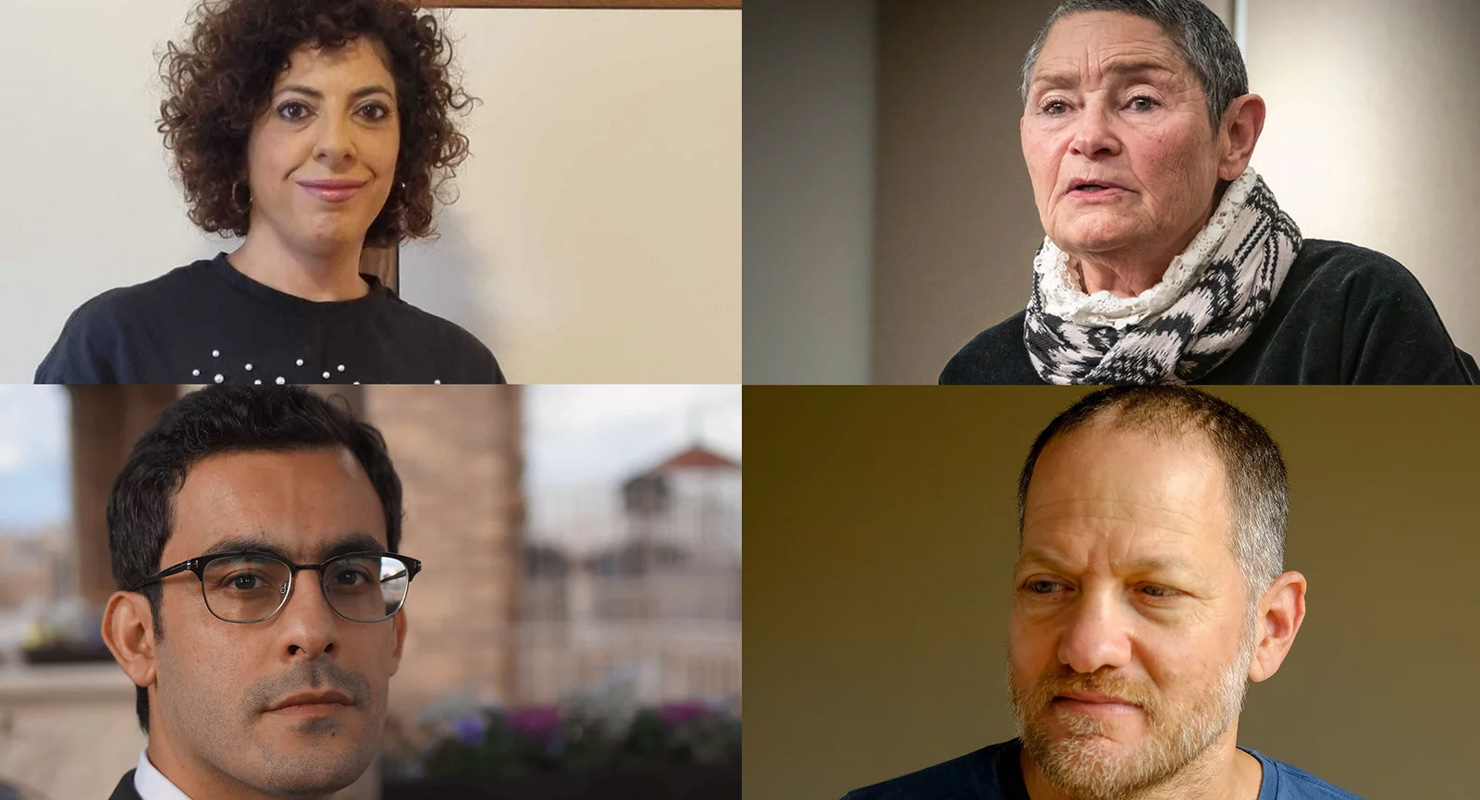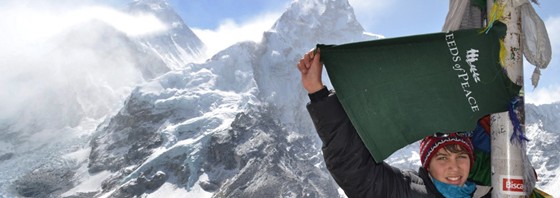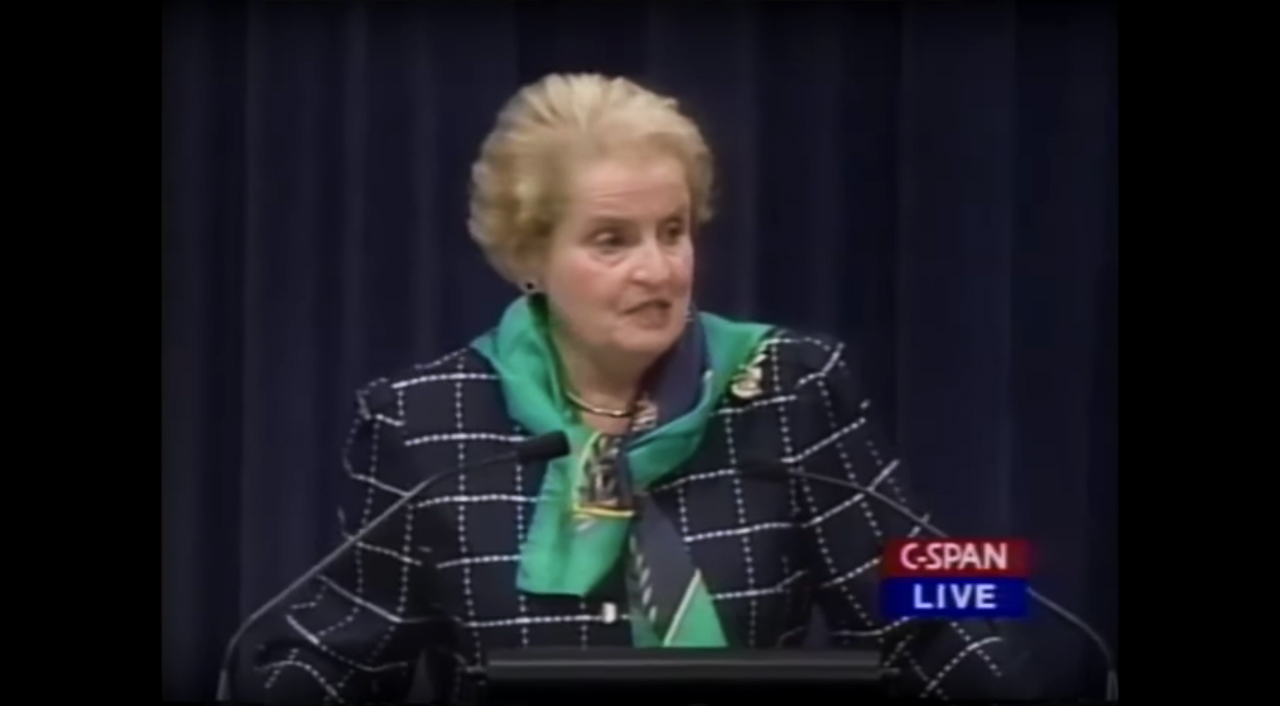OTISFIELD, MAINE | When Saja Abuhigleh returned home to the Palestinian town of Ramallah last year, her friend Donia stopped speaking to her.
The problem: Saja was bursting with enthusiasm for Maine’s Seeds of Peace camp, where she had just spent three weeks, and for her friends there—including Israelis.
“She told me, ‘I can’t believe after everything that happened to your family, you can make friends with them,’ ” Saja recounts sadly.
Adar Ziegel, one of Saja’s Israeli bunkmates last summer, also had her ideals from camp tested. Her friend Tom was riding the No. 37 bus in Haifa in March when a suicide bomber blew it up. Tom and his father were killed, along with 13 others. It was the first time that the violence of her homeland had touched Adar so personally.
Seeds of Peace, a lakeside enclave northwest of Portland, is dedicated to helping teenagers from the Middle East begin to overcome their differences—or at least put a human face on the “enemy.” But it’s one thing to express optimism in the Maine woods; it’s another to test that optimism against the violence and hatred back home.
Last summer, the Monitor followed both Adar and Saja—along with Ariel Tal, an Israeli at camp for his third year, and Sami Habash, a blond, intense Palestinian—through the challenges and triumphs of learning to live with those from the other side. After three weeks of bonding in a safe setting, all four teenagers had felt hopeful, and were determined to keep working for peace at home. They were worried, too, about what would happen once the “bubble” of camp gave way to the harsh realities of checkpoints, tanks, and suicide attacks.
Returning after a year of change
In the end, Saja, Sami, and Adar all returned for a second summer—something only about 10 percent of campers do. (Ariel, after three years at Seeds of Peace, was too old.)
Their reasons varied, from wanting to learn more patience to simply missing friends and the fun of camp. They have no illusions about how much change a few teenagers can effect. But their commitment to peace is a year stronger, and their decision to return, ultimately, an act of hope.
It was a year of changes for all four. Saja put on the hijab, against her family’s wishes. Sami was offered a full scholarship to Brandeis University in Massachusetts, but will follow his mother’s desire that he attend Hebrew University in Jerusalem. Ariel finished high school and will be drafted into the Israeli army this fall.
And, for the first time, the violence was made truly personal for Adar. She still remembers every detail of March 5—her birthday. She was at the beach celebrating when a friend called: A bus had exploded right next to the bakery where she and her friends hang out. A flurry of phone calls revealed that most of her friends were fine. Only Tom was missing. It wasn’t until the next morning, as she was putting on her shoes, that Adar heard Tom’s name read over the radio. She fell to the floor crying.
Rather than destroy Adar’s belief in peace, however, Tom’s death strengthened it. One of the first things she did was write a letter to the network of Seeds of Peace alumni, pouring her heart out to people she thought might understand. She was amazed at the responses she got—from good friends and people she’d never met; from Israelis and Palestinians.
“They wrote and called me and supported me in ways I couldn’t have asked for,” Adar remembers.
Three days after the bombing, against the protests of some of her friends in Haifa, Adar went to the Seeds of Peace center in Jerusalem, seeking support but also feeling a renewed sense of purpose.
“Before, it was talking to them, and listening, and understanding … But now I felt that I owe it to someone to actually do it.”
Saja’s year has been calmer. She has emerged as a leader, helping the new campers with their English, and displaying authority as she teaches a group of Palestinians to perform the dabke, a traditional dance, for the talent show. And she wears the hijab—one of the few campers to do so—with a quiet grace. When she returned home to Ramallah last summer, Saja says, her mother hardly recognized her as the same shy girl who had never wanted to leave home alone.
“Last year, I was afraid to pass the checkpoints,” she says, smiling. “But when I came back from camp, I just told my mother, I will go alone through the checkpoints. If you want something from Jerusalem, I will go bring it.”
Her mother wasn’t always thrilled with Saja’s desire to spend time at the Seeds center in Jerusalem, though, and several times asked her to stop going. And neither parent was happy when she had a dream “about God” two months ago and decided to put on the hijab and study the Koran in earnest. Her mother, she says, has been pleading with her to take it off, at least in Maine, but Saja is resolute.
“When a girl puts on the hijab, something changes inside of her,” she explains.
Reconciling peace with military service
While Saja and Adar tried to reconcile life back home with the ideals of camp, Ariel was facing life after Seeds. His commitment to peace had already been tested once, when a friend was killed in a suicide bombing, and Ariel is confident it’s a commitment that will survive the army. That’s not to say the decision was easy.
“On the one hand, I have a great desire to serve my country and do it in the best possible way,” he writes in an e-mail. “On the other hand, after listening to my Arab friends and after being at Seeds I know the suffering of the other side.”
His Arab friends know he’s joining the army, and Ariel says they’re supportive. In the meantime, he has stayed closely connected with the Seeds center in Jerusalem, where he has been learning to facilitate the sensitive coexistence, or “coex,” sessions between Israelis and Palestinians. The work, he says, reinforced for him what he considers the ultimate lesson of Seeds of Peace: listening.
That’s a lesson Sami has taken to heart this summer. Last year, he often engaged in heated debates, and became easily frustrated when, say, an Israeli settler in his coex session relied on “different facts” from his. This year’s “coex” sessions for returning campers are less about politics, though, and more about trust and communication. Surprisingly, Sami likes the change.
“You get to know the personality of someone truthfully,” he says. “This year, I’m trying to listen more than to talk.”
Read Amanda Paulson’s first 2002 Christian Science Monitor story »




